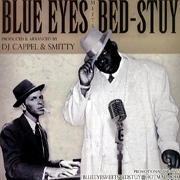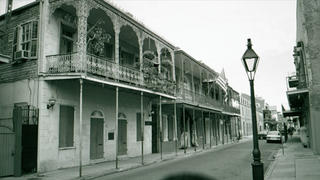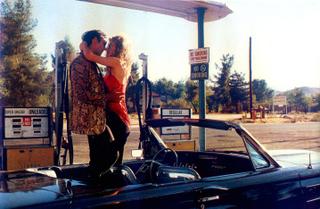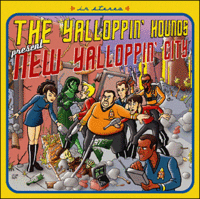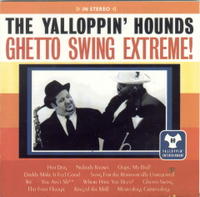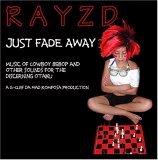The first single, Smells like Teen Spirit, is one of the weaker tracks. Anka treats these songs with an almost reverential seriousness: this isn't the camp, kitsch lounge makeover of rock tunes that you'd expect to hear from a lesser artist (Richard Cheese's one-trick novelty albums spring to mind ~ vaguely amusing the first time but dreadfully dull on repeated listenings). The problem with Smells Like Teen Spirit is that the song, such as it is, just can't bear the weight of Anka's reverence. His perfect enunciation means we can, finally, hear every word of Kurt's cryptic lyric. This is a distinctly mixed blessing:
Hello, hello, hello, how low?.....I'm a mullato, an albino, a mosquito, my libido ....Hal David it ain't, and it loses the little meaning it possessed when divorced from Cobain's primal, angst-ridden howl.
On the downside: not much of the rest of the album rocks and a few tracks barely even swing: it's hard to imagine anything so quintessentially superfluous as an even blander retread of Lionel Ritchie's execrable Hello; surely one of the most annoyingly anodyne songs in the canon of popular music. There are so many runners and riders jostling for position at the starting gate of the Rock Swings Weak Ballad Derby that the bona fide thoroughbreds (and there are a few) almost get trampled in the crush. Eyes Without a Face, Everybody Hurts, It's a Sin and True clog up the album like a logjam of fatty solids but, even amongst the ballads, a couple of vital signs remain: Anka's poignant rendition of Clapton's Tears in Heaven is a distinct improvement on the original and Soundgarden's Black Hole Sun is sublime.
However, on the upside (and what an upside!) there are some great up-tempo swinging tunes which are reminiscent of Neal Hefti's exciting, upbeat arrangements of Basie and Sinatra in the 60s. Anka's band are tighter than the Sicilian Mafia and Paul sounds as relaxed an in control as Santo Trafficante lounging poolside at the Hotel Nacional, Havana. During the intro to Anka's cover of Bon Jovi's It's My Life you could swear Sinatra is about to burst into "Out of the tree of life, I just picked me a plum..." The song resonates ironically as Anka sings "Frank said it "I did it My Way"" as, of course, Anka penned that very tune for Old Blue Eyes. This sly joke invigorates an otherwise banal song and adds a playful, postmodern layer of gloss to the highly-polished proceedings. Eye of the Tiger, Jump and Wonderwall are all blessed with arrangements which swing harder than the French aristocracy.
Anka doesn't just rework the best songs on this album in a predictable lounge style: he deconstructs them and creates something rich, strange and new. Tears in Heaven, Lovecats and, particularly, Blackhole Sun are imbued with an eerie, ethereal quality: they sound like they've crash-landed on an alien planet, where they've been reverse-engineered and reconstructed by a superior intelligence.
On a recent chat show, Anka, rather disingenuously, replied "no" to the question "has anyone ever done anything like this before?" Anka's Blackhole Sun is little different from Steve Lawrence and Eydie Gorme's fabulous, and quite possibly superior, version; Mike Flowers Pops were the first to re-interpret Wonderwall in a lounge style and Jamie Cullum and Katie Melua performed a jazz-pop rendition of The Cure's Lovecats at the 2004 Brits awards show. If the project isn't quite as original as he thinks it is, Anka does bring impeccable credentials and a commendable gravitas to the proceedings.
The trouble is this: scrutinising sloppy workmanship with a keen eye is bad enough but bring an electron microscope to the table and the faults stand out bolder than the Hollywood sign from the face of Mount Lee. Blackhole Sun is probably the only song on the album which can lay a legitimate claim to being -- hands down, no contest -- truly great.
Rock Swings is a deceitful doppelganger: neither divine nor diabolical, it's an almost great album which is almost awful. Listening to it provokes a strange admixture of déjà-vu and préjà-vu: it almost sounds like the kind of album you didn't think they made anymore, even though you suspect they never really did, and it almost sounds like a mysterious preview of the kind of album they might make in the future, but probably won't. You're not quite sure whether it's been retro-engineered to sound kitsch or "futro"-engineered to sound hip.
I wish I could claim that every moment of inspiration is subverted by a sublimely dissonant and exquisitely proportionate moment of ineptitude, but, in truth, Rock Swings is undermined by it's own dull proficiency.
